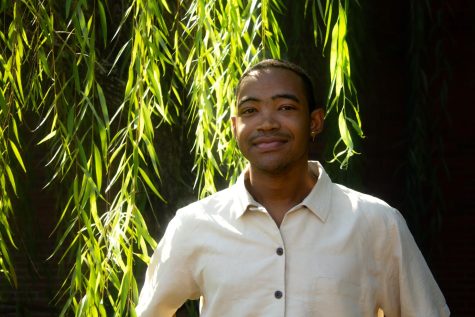Let’s Chat ABT AI
“You think you’ve cut off the head of the beast, but it just keeps multiplying,” Catherine Bradley, a Georgia Southern alum and current high school English teacher, told me over a phone call.
In November of 2022, ChatGPT was launched by OpenAI, a company that has garnered mass media attention in the past few months.
ChatGPT is a conversational artificial intelligence. The software answers complex questions of advanced reasoning, creates creative responses to prompts, and even completes entire essays with perfectly cited sources.
Like many instructors across the country, Bradley is attempting to find new ways to combat the insurgence of the utilization of AI software for school assignments.
“Students are very savvy, if there’s a way to lighten their workload— they definitely will,” she said.
Banks like JPMorgan Chase and Co. have banned the use of the site amongst their employees, and schools across the country have banned the site and begun teaching staff how to detect AI in student work.
Still, AI-detecting software is not guaranteed to always be completely accurate. According to a study done by In Marketing We Trust, current software is only able to detect AI less than 60% of the time.
With new AI systems appearing daily, simply banning one software is not as effective when the options for artificial intelligence seem endless.
Even here at Armstrong campus, professors have made note of their awareness of these softwares, warning students that using these programs to complete assignments could be considered plagiarism.
The Inkwell interviewed students around campus to get their takes on the use of ChatGPT in higher education and the potential effects AI might have on the workforce.
“It seems like it’s become an arm’s race,” Jake Quinn a senior English major said. “Programmers are developing programs that can detect AI writing. But at the same time, AI writing is always getting better.”
“One thing that professors could do is have in-class writings,” Quinn suggests. “But that doesn’t really work for longer essays.”
“It seems apocalyptic to me as a writer,” he continued. “I don’t think writers are valued enough for companies to care about paying them money when they could just have a program do it for them.”
In the Learning Commons, Jupiter Lance, a History major and Matthew, a Biology major, weighed in on the conversation surrounding AI. While neither of the two use ChatGPT personally, they both reasoned why others might have no problem doing so.
“It takes out a lot of originality and self-improvement because you don’t really do anything yourself anymore,” Matthew said.
“I do think AI is a good step forward, but it’s just gone too far in some areas,” Lance added. “It could be preventable but right now, I think it definitely is a way that people could cheat and get through college instead of actually working for it.”
“It’s too easy,” Matthew stated. “I don’t. But if I did, I would get too comfortable with it.”
Llola Mitchell, an Education major, understands how useful a tool such as ChatGPT can be for students, pointing out that the software could be utilized for edits to pre-existing work similar to applications like Grammarly.
As a future teacher, Mitchell hopes her students will not use AI to complete assignments. “If there’s AI, there’s going to be more software that can detect it I’m guessing,” she added.
Kat, a senior in the Nuclear Medicine program commented on potential job loss due to the rapid development of AI.
In particular, Kat feels that trucks wholly operated by artificial intelligence could soon make the occupation obsolete in the trucking industry.
“A lot of people that work in the trucking industry are people who did not finish high school, got a GED, or cannot finish college,” they explained.
“If AI were to be input into the trucking industry— it would save the companies money,” she continued. “But it would cause an entire genre of the workforce to lose out on that money. Especially those who are not able to go to college to get a higher education.”
ChatGPT seems to have the world caught in its interwebs. Will AI change the post-secondary education system for good?



